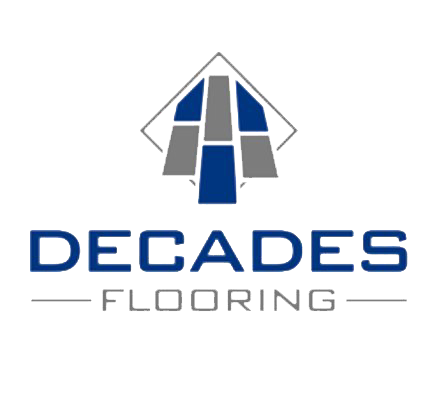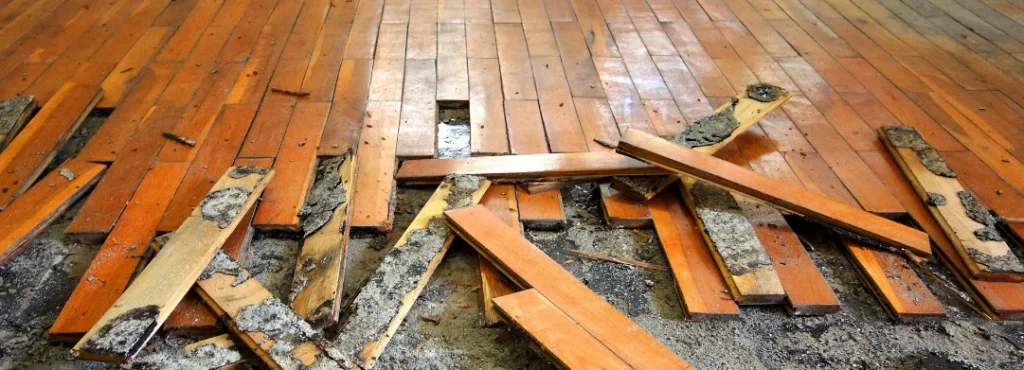Hardwood floor repairs are a popular choice for homeowners due to their durability, timeless aesthetic, and the value they add to a property. However, over time these floors can start to show signs of wear and tear such as scratches and squeaks. While these issues may seem minor at first glance, they can quickly become major headaches if not addressed promptly.
In this article, we will explore the common problems that arise with hardwood floors and provide solutions for troubleshooting them. Whether you’re dealing with scratches from pet claws or noisy floorboards that disrupt your peace and quiet, we’ve got you covered.
By following our advice on identifying the issue, using DIY solutions where applicable, and knowing when to call in a professional, you’ll be able to keep your hardwood floors looking and sounding their best for years to come.
Identifying the Issue
The initial step in addressing hardwood floor issues involves accurately identifying the underlying cause of the problem through a systematic and analytical examination of observable symptoms. This is essential to ensure that any solution applied will effectively address the issue and prevent it from recurring.
One common symptom that homeowners may observe is squeaking or creaking sounds when walking on their hardwood floors. This can be caused by various factors such as loose subflooring, inadequate nailing, or improperly installed floorboards.
Another issue that homeowners may encounter is scratches on their hardwood floors. These scratches can detract from the appearance of the flooring and reduce its lifespan if left unaddressed. Identifying the source of these scratches can be challenging as they can be caused by a variety of factors such as pet claws, furniture movement, or high foot traffic areas. However, once identified, solutions such as sanding and refinishing or applying protective coatings can be implemented to restore the beauty and durability of your hardwood floors.
DIY Solutions
One potential solution for addressing issues with hardwood flooring involves taking a do-it-yourself approach, utilizing various techniques and materials to address common problems. This can be a cost-effective way to solve minor issues without the need for professional help. However, it is important to note that some problems may require the expertise of a flooring specialist.
Here are five DIY solutions that homeowners can try when troubleshooting their hardwood floors:
– Clean and polish the floors using appropriate cleaning products to remove scuffs, scratches, and stains.
– Fill in gaps between boards using wood filler or rope caulk.
– Fix loose or squeaky boards by applying adhesive underneath or securing them with screws.
– Sand down uneven areas of the floor and refinish it with stain or sealer.
– Use furniture pads or rugs to protect high-traffic areas from further damage.
It is important for homeowners to research each solution thoroughly before attempting any repairs. Additionally, they should consider consulting with a professional if they are unsure about how to proceed or if their issue requires more extensive repairs.
By taking these DIY measures, homeowners can maintain their hardwood floors’ beauty, durability, and value over time.
When to Call a Professional
Professional assistance may be necessary for addressing certain issues with hardwood flooring, especially when the problem is beyond the scope of DIY solutions or requires specialized tools and expertise.
For example, if there are deep scratches or gouges in the wood, it may be necessary to hire a professional to sand and refinish the floor. This process involves removing the top layer of wood that has been damaged and applying a new layer of finish. If not done correctly, this can cause further damage to the floor.
Another instance where professional help may be needed is when there are squeaks in the floorboards. Squeaks occur when boards rub against each other or against nails or screws. While it may seem like a simple solution to add more nails or screws to secure loose boards, this can actually cause more damage by splitting the wood.
A professional will have specialized tools and techniques for fixing squeaky floors without causing additional harm to the wood. In general, hiring a professional for hardwood flooring repairs ensures that your floors are properly maintained and prevents future problems from occurring.
Frequently Asked Questions
Can hardwood floors be damaged by water, and if so, what should I do to repair them?
Water can severely damage hardwood floors, causing warping, buckling, and mold growth. Immediate action is necessary to prevent further damage. Contact a professional to assess the extent of the damage and determine the best course of repair.
Is it possible to remove scratches and dents from hardwood floors without sanding them down?
Yes, it is possible to remove scratches and dents from hardwood floors without sanding them down. Some methods include using a wood filler, wax crayons or markers, vinegar and vegetable oil, or a mixture of baking soda and water.
How often should I refinish my hardwood floors, and what steps should I take to prepare for the refinishing process?
The recommended frequency for refinishing hardwood floors depends on the amount of foot traffic they receive. To prepare for the process, remove all furniture and cover vents. Sanding and cleaning are also necessary steps before applying a new finish.
What are some common mistakes people make when trying to repair their own hardwood floors, and how can I avoid them?
Common mistakes people make when repairing hardwood floors include improper sanding, incorrect use of wood filler, and not allowing enough time for the finish to dry. To avoid these mistakes, follow manufacturer instructions and seek professional guidance if needed.
Are there any special considerations I should keep in mind if I have pets or children in my home when repairing or refinishing my hardwood floors?
Special considerations should be taken into account if you have pets or children when repairing or refinishing hardwood floors. It is important to choose non-toxic products, keep the area well-ventilated and restrict access until the work is complete to ensure their safety.
Conclusion
Hardwood floors are a popular choice for homeowners due to their durability and timeless aesthetic. However, over time, these floors can develop scratches and squeaks that detract from their beauty. Identifying the issue is crucial to finding the right solution.
One common issue with hardwood floors is scratches caused by furniture or pets. DIY solutions include using wood filler or sandpaper to fill in the scratch and blending it into the surrounding area.
Another common problem is squeaking caused by loose floorboards. A simple fix involves using screws to secure the boards back into place.
While DIY solutions may be effective for minor issues, more significant problems require professional assistance. Cracked or warped boards may need to be replaced entirely, and refinishing requires specialized equipment and expertise.
In conclusion, making efficient hardwood floor repairs requires identifying any issues they may have and addressing them promptly. Whether you opt for DIY solutions or seek professional assistance, ensuring your floors remain in top condition will not only enhance their appearance but also increase their longevity. Remember: proper maintenance prevents persistent problems!
5 Essential Steps For Preparing Your Hardwood Floors For Repair



